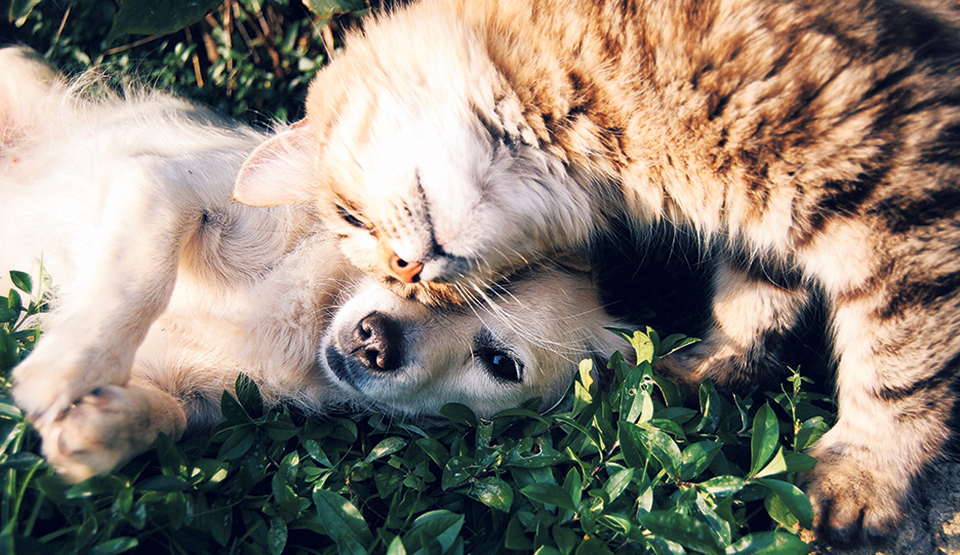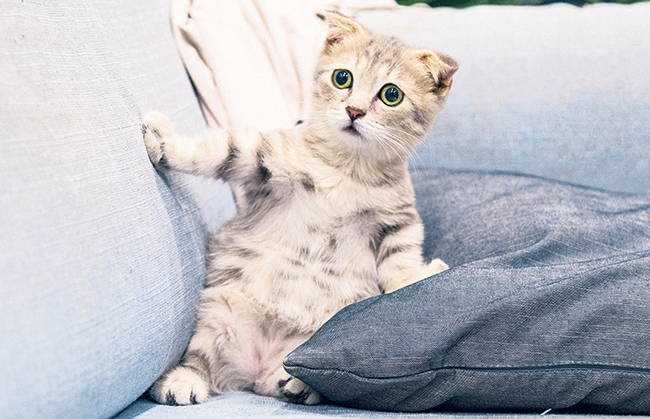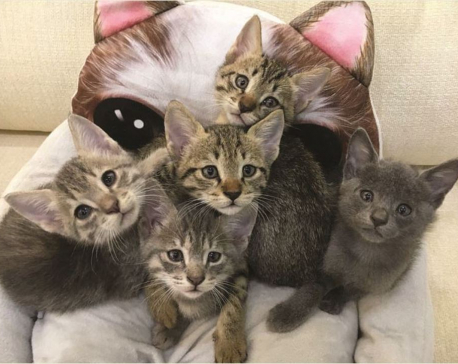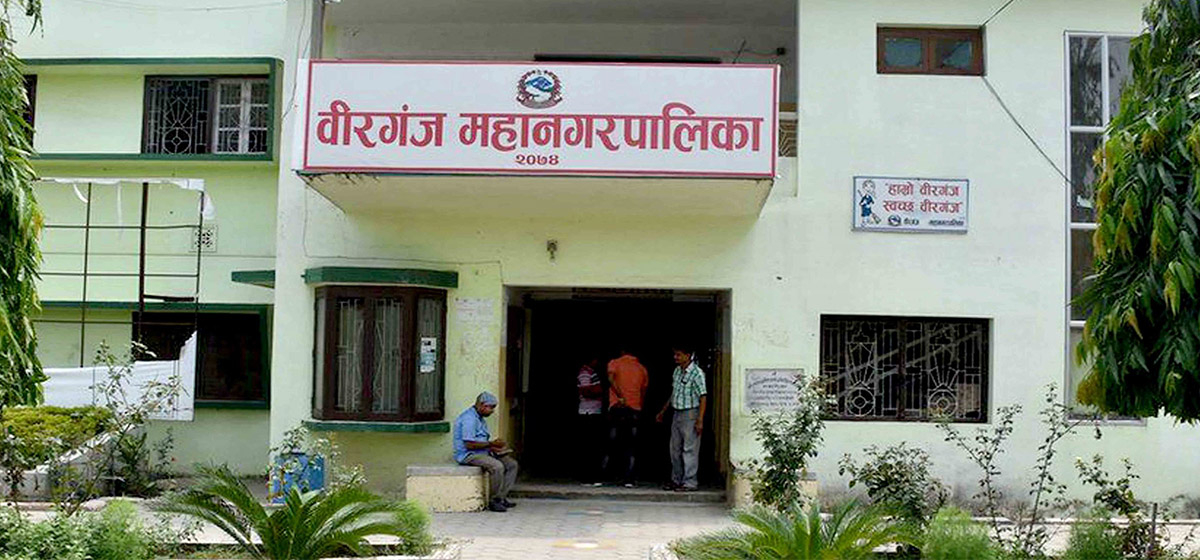
OR

Pets are an essential part of our lives. They are truly a man’s best friends. Research suggests that pet owners are less likely to be depressed and suffer from other chronic health problems. Studies have proven that pet owners tend to have lower blood pressure, cholesterol and triglyceride levels than people who don’t own a pet. Having a furry pal can also reduce your stress levels and the great thing is you are never alone.
However, keeping a pet comes with its fair share of responsibilities. Dr Bikas Giri, veterinary officer, says, “Puppies and kittens should receive the same care as a newborn baby. They must be provided with the right nutrition, vaccination and brought up in a clean and healthy environment.”
Dr Giri further mentions that when you are bringing a pet home, whether it’s a puppy or a kitten, make sure you have let it stay with its mother for at least 45 to 60 days. “After two months of birth is usually the right time to separate them from their mothers,” he says adding that a puppy or a kitten requires a nutritious meal just as infants do. However, in the earlier stages, you must take care to give it food in liquid form. Once they are three to four months old, you can add boiled meat and rice to their diets.
Dr Giri also recommends supplementing your pet’s diet with pet foods available in the market. These foods, he says, are tailor-made for puppies and kittens and they thus contain nutrients that are essential for your pet’s overall wellbeing.
“When your pet is small, feed it five times a day. You should feed it every two to three hours,” he says adding that your pet will usually start eating dirt and soil if it lacks nutrients in its diet in which case extra supplements of proteins, calcium, and certain minerals can be added after consulting a vet.
Food isn’t the only area where you have to pay extra attention when your pets are small. There are various vaccines that are imperative to keep your pet healthy. Kittens, however, aren’t prone to many diseases so an anti-rabies vaccine when they are two to three months old should suffice. However, puppies are a little high maintenance in this area. There are a ton of viral diseases and infections that they are prone to.
“They are vulnerable to diseases like Canine Parvovirus Enteritis that only has symptomatic treatment and Canine Distemper which is fatal so they have to be vaccinated against them at the right time,” explains Dr Giri.
He further adds that there are mainly three important vaccines that should be administered. The DHPPiL vaccine prevents puppies from five severe viral diseases and should be given when they are 42 days old. Likewise, corona virus vaccine should be given when your pet is 60 days old to prevent it from canine coronavirus infection. And anti-rabies vaccine should be given when the puppy is 90 days old.
“Booster doses for these vaccines are equally important. Without them, the initial vaccines might be rendered useless,” says Dr Giri adding that timely deworming is also of paramount importance and that can be done as soon as you bring a pet home.
Besides making sure your pets are fed properly and given the right vaccines, you should also pay attention to their hygiene. Giving them timely baths is important but you should never use soaps and shampoos that are meant for people. These are too harsh for them. There are many products that are made for animals that are friendlier on their skins and furs.
These days, you also get dry shampoo that you can spray on your pets and then wipe them down with a damp towel. This is easier than giving it a bath and since you can do this as frequently as you like and it can also help keep your pet looking clean and feeling fresh between baths.
However, Dr Giri mentions that newborn animals are more likely to catch cold and pneumonia so he recommends not giving them a bath until they are three months old. And even after that, it would be a good idea to give them a bath on sunny days and wrap them with a warm blanket afterwards.
Another hygiene issue comes with their toilet habits. It might initially seem like your pet will never be toilet trained but, with time and proper guidance, it can be done. Dr Giri suggests you pay attention to their tentative time of littering and take them to a specific place around that time so that they understand they need to go there every time they have an urge to pee or defecate.
However, there’s no need to panic when you bring a pet home because you don’t know how to take care of it. Consulting a vet on the do’s and don’ts after you have brought a pet home and following the advice can keep your pet healthy and happy in the long run.

Dr Giri’s five basic recommendations
- Don’t tie your pets or put them in a cage.
- Fresh water should be available to them all the time.
- Give them toys to play with but make sure these are large enough to not be swallowed or that they aren’t choking hazards.
- Comb their hair at least once every day.
- Spend time with them because, like us, they too can feel lonely and neglected otherwise.
You May Like This

Giving newly-born kittens a home
Generally, people have a divided opinion on cats. Some think they are clean and wonderful as pets while others think... Read More...

5 things to do during your summer holidays
During summer, there don't seem to be nearly enough things to do. Here are 5 activities you may want to... Read More...

Pets, owners flock to Madrid church for blessing of animals
Dogs, cats and birds were blessed at a church in Madrid on Thursday on the feast day of St. Anthony,... Read More...





Just In
- KMC to organize a month-long skill fair from May 1
- Birgunj Metropolis collects over Rs 360 million in revenue
- NEPSE plunges below 2,000 points after one and a half months; daily turnover declines to Rs 2.10 billion
- AI Index Report-2024: AI still behind humans on complex tasks like competition-level mathematics
- Daiji-Jogbudha road construction at snail’s pace
- Govt fails to adopt podway technology despite its potential in Nepal
- Jhulaghat border crossing in Baitadi to remain closed from this evening
- Universities will be free from partisan interests: Education Minister














Leave A Comment